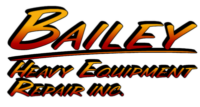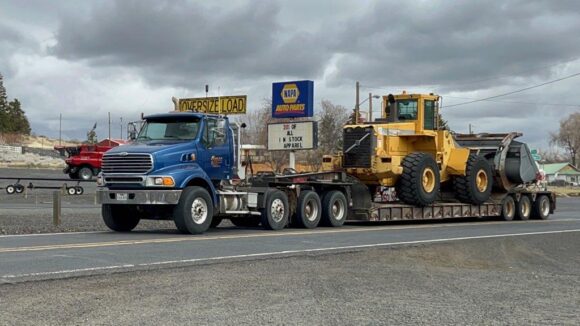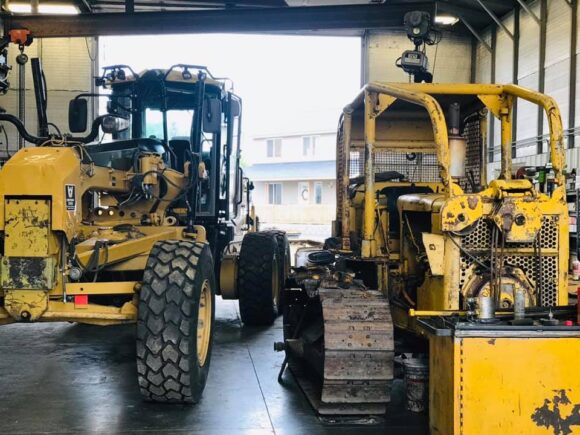Shorter Days, Safer Rides: Essential Fall Safety Checks for Your Heavy Equipment
As the warm months fade into the crisp, cool air of autumn, the working conditions for operators and fleet managers shift significantly. Shorter days, cooler mornings, increased rainfall, and the occasional fog can create an environment where visibility and safety become more challenging. For businesses operating commercial vehicles, trucks, and heavy equipment in Oregon, the arrival of fall is not just a seasonal change—it’s a call to action for safety and preparation. A thorough heavy equipment safety check ensures reliability, minimizes downtime, and keeps your operators safe on the road or at the jobsite.
In regions like Lexington, OR, where trucking and industrial operations play a vital role in supporting agriculture, construction, and logistics, fall equipment maintenance is critical. Neglecting seasonal maintenance not only puts machinery at risk but also jeopardizes commercial vehicle safety standards. This comprehensive guide explores the essential fall safety checks, with a special focus on how truck repair in Lexington, OR, and broader heavy equipment practices across Oregon can help you prepare for the unique challenges of the season.
The Changing Season and Its Impact on Equipment Safety
Fall is often underestimated when it comes to its impact on heavy equipment. Many operators think of winter as the harshest season, but autumn presents its own risks. Shorter days mean more time spent operating trucks and machinery in low-light conditions. Rainfall is heavier and more frequent, creating slick roads, muddy jobsites, and increased chances of hydroplaning or sliding. Early morning frost can impact visibility, while fallen leaves create slippery surfaces that reduce traction for tires and tracks.
For heavy equipment safety checks, Oregon operators must consider both the mechanical and environmental factors that change during fall. Equipment that performed well in summer heat may encounter unexpected wear when faced with fluctuating temperatures and moisture. Electrical systems are stressed by condensation, batteries struggle in colder mornings, and tires can lose pressure more quickly as the air temperature drops.
Beyond the mechanical implications, there are also regulatory and operational pressures. Commercial vehicle safety regulations do not relax simply because the weather changes. On the contrary, compliance inspections can become more stringent as conditions worsen, emphasizing the importance of preventive maintenance. This is where fall equipment maintenance in Oregon becomes a proactive strategy rather than a reactive response.
Prioritizing Preventive Fall Equipment Maintenance in Oregon
Preventive maintenance is more than a checklist; it is a mindset that ensures safety, productivity, and compliance. For fleets and independent operators in Oregon, fall is the ideal time to assess the state of every vehicle and piece of machinery before winter creates even greater challenges.
Engine performance is often the first priority. Cooler temperatures can mask underlying issues like slow starts, weak fuel combustion, or compromised air filters. Addressing these problems before winter ensures that trucks and heavy equipment remain reliable throughout the season. Fluids also require special attention. Oil thickens in lower temperatures, so checking viscosity levels and replacing fluids with season-appropriate alternatives is a critical step in fall equipment maintenance.
Tires and brakes deserve special focus. Wet roads and muddy jobsites put extra strain on braking systems, making inspections of brake pads, rotors, and hydraulic lines essential. Tire tread depth and pressure must also be monitored closely, since cold weather can decrease PSI, compromising safety and fuel efficiency. For operators working in Lexington, OR, where terrain varies from paved highways to gravel farm roads, proper tire maintenance is especially important.
Lighting and visibility systems are another cornerstone of heavy equipment safety checks. As daylight diminishes, headlights, brake lights, hazard lights, and reflective markings must all be in top working condition. Many accidents in fall are preventable if equipment is properly illuminated for early morning or evening work. Ensuring windshield wipers are functional and washer fluid is full is also key to maintaining visibility in rainy conditions.
The Role of Truck Repair in Lexington, OR
Even the most diligent preventive maintenance programs require professional support. For operators in Lexington, OR, truck repair services play an indispensable role in keeping commercial vehicles safe and reliable throughout the fall. Local repair shops understand the specific climate and terrain challenges faced by Oregon operators, from agricultural hauls to construction site deliveries.
Truck repair in Lexington, OR, is more than fixing breakdowns; it is about providing seasonal inspections and proactive solutions. Many shops offer specialized fall checkup packages that include battery testing, coolant analysis, brake adjustments, and tire inspections. By scheduling these services ahead of peak demand, fleet managers avoid costly downtime and ensure compliance with commercial vehicle safety regulations.
One of the key benefits of partnering with local truck repair experts is their familiarity with the regulatory landscape in Oregon. Compliance requirements for commercial vehicles can be complex, and having a trusted repair partner ensures inspections are conducted thoroughly and documentation is up to date. This not only protects operators from fines but also enhances overall fleet safety.
Moreover, repair shops in Lexington offer tailored solutions for industries that rely heavily on seasonal operations. Agricultural fleets, for example, must be prepared for harvest transportation, while construction companies face the challenge of completing projects before winter weather halts outdoor work. Truck repair professionals understand these cycles and provide timely support that aligns with business needs.
Enhancing Commercial Vehicle Safety Through Fall Readiness
Commercial vehicle safety is not achieved through a single action—it is the result of consistent practices that prioritize the well-being of drivers, operators, and the public. Fall presents unique risks that demand heightened awareness and preparation. For Oregon fleets, this means integrating fall-specific checks into regular safety protocols and ensuring every operator understands their role in maintaining safe practices.
Driver education is one of the most powerful tools for enhancing safety. Operators must be trained not only to inspect their equipment but also to adapt their driving techniques to seasonal conditions. Reduced visibility requires greater caution, longer stopping distances are necessary on wet roads, and increased wildlife activity in fall evenings demands alertness behind the wheel. By fostering a culture of safety, fleet managers create an environment where accidents are less likely to occur.
Technology also plays a role in fall safety. Modern commercial vehicles are equipped with advanced safety features such as collision avoidance systems, blind spot detection, and electronic stability control. Ensuring these systems are properly maintained and calibrated enhances overall commercial vehicle safety. Fleet managers should also consider implementing telematics systems that monitor vehicle performance and driver behavior, providing real-time data that supports preventive maintenance and safer operations.
Finally, compliance cannot be overlooked. Oregon regulations regarding heavy equipment and commercial vehicles are designed to protect everyone on the road. By conducting thorough heavy equipment safety checks and keeping maintenance records up to date, businesses not only protect their operators but also build a reputation for reliability and responsibility.
Building a Culture of Safety for the Long Haul
Fall equipment maintenance in Oregon is more than a seasonal task—it is a commitment to long-term success and sustainability. Businesses that invest in proactive maintenance and prioritize commercial vehicle safety are better positioned to reduce costs, improve efficiency, and retain skilled operators who feel confident working in safe conditions.
For fleet managers in Lexington, OR, building a culture of safety begins with consistent practices. This includes scheduling regular truck repair services, integrating seasonal inspections into standard operating procedures, and reinforcing the importance of safety through training and communication. Operators who understand that safety is a shared responsibility are more likely to take ownership of their roles, leading to fewer accidents and more efficient operations.
In addition, creating partnerships with trusted repair providers strengthens this culture of safety. By working with local experts who understand both the mechanical and regulatory aspects of heavy equipment maintenance, businesses can ensure that every piece of equipment is operating at its best. This collaborative approach not only reduces downtime but also fosters a sense of community and shared accountability for safety.
Conclusion
As the days grow shorter and the weather turns colder, the importance of preparing your heavy equipment for fall cannot be overstated. A comprehensive heavy equipment safety check addresses the unique challenges posed by autumn, from reduced visibility and slick surfaces to regulatory compliance. For operators and fleet managers in Oregon, fall equipment maintenance is both a practical necessity and a strategic advantage.
Truck repair in Lexington, OR, provides the local expertise and professional support needed to navigate seasonal transitions effectively. By investing in preventive maintenance, enhancing commercial vehicle safety practices, and fostering a culture of safety, businesses ensure their operations continue smoothly through fall and into the demanding winter months.
In the end, safety is not just about avoiding accidents—it is about building trust, protecting investments, and ensuring that every operator returns home safely after a day’s work. With careful planning, proactive maintenance, and a commitment to excellence, Oregon businesses can face the fall season with confidence, knowing their heavy equipment is prepared for the road and the jobsite alike.





